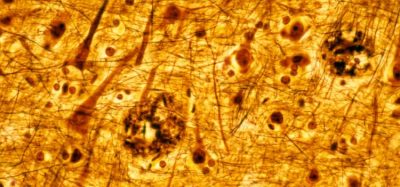mRNA vaccine trial shows efficiency in older adults with RSV
Posted: 18 January 2023 | Catherine Eckford (European Pharmaceutical Review) | No comments yet
Moderna’s mRNA vaccine targeting respiratory syncytial virus (RSV) in older adults demonstrated promising efficacy in a Phase III trial.


mRNA-1345 demonstrated vaccine efficacy (VE) of 83.7 percent in Moderna’s mRNA vaccine Phase III trial targeting respiratory syncytial virus (RSV) in older adults.
Stéphane Bancel, Moderna’s Chief Executive Officer observed that the results represent an important step forward in preventing lower respiratory tract disease (RSV-LRTD) in adults over 60 years old. She shared: “Respiratory diseases are a major public health priority given they… are a leading cause of hospitalisation.”
Moderna’s mRNA vaccine – mRNA-1345
mRNA-1345 is an investigational RSV vaccine. It consists of a single mRNA sequence encoding for a stabilised prefusion F glycoprotein. It uses the same lipid nanoparticles (LNPs) as in the Moderna COVID-19 vaccines. The F glycoprotein is on the surface of the virus and is required for infection by helping the virus to enter host cells. It exists in two states, prefusion and postfusion. The prefusion conformation is a significant target of potent neutralising antibodies and is highly conserved across both RSV-A and RSV-B subtypes.
The ConquerRSV trial
ConquerRSV is a randomised, double-blind, placebo-controlled study. Approximately 37,000 adults 60 years or older were enrolled from 22 countries, including the US. The primary efficacy endpoints for the mRNA vaccine were based on RSV-LRTD defined as either two or more symptoms, or three or more symptoms of disease.
Primary efficacy endpoints of the trial were met: VE of 83.7 percent (95.88 percent CI: 66.1 percent, 92.2 percent; p<0.0001).
The interim analysis was based on data that showed:
- In the 64 cases of two or more symptoms, 55 occurred in the placebo group and nine occurred in the mRNA-1345 group
- In the 20 cases of RSV-LRTD with three or more symptoms, 17 cases were observed in the placebo group compared with three cases observed in the mRNA-1345 group.
The trial showed the mRNA vaccine was well tolerated with no safety concerns identified. Safety and tolerability will continue to be followed in this ongoing study. To date, most solicited adverse reactions were mild or moderate. The most commonly reported solicited adverse reactions in the mRNA-1345 group were injection site pain, fatigue, headache, myalgia, and arthralgia.
“This trial will help to understand the role of severe acute respiratory infections in older adult populations and inform the future implementation of vaccines in adults in lower-resource areas,” stated Abdullah Baqui, a principal investigator for the study sites in Bangladesh and Professor of the Department of International Health, Director, International Center for Maternal and Newborn Health, Johns Hopkins Bloomberg School of Public Health, Johns Hopkins University.
Based on the study results, Moderna intends to submit for regulatory approval in the first half of 2023. Moderna will submit the data for peer-reviewed publication and present it at an upcoming scientific meeting.
In August 2021, mRNA-1345 gained Fast Track designation in adults over 60 years old.
Related topics
Big Pharma, Biopharmaceuticals, Clinical Development, Clinical Trials, Drug Development, Drug Safety, mRNA, Research & Development (R&D), Vaccines, Viruses
Related organisations
Related drugs
Related people
Related diseases & conditions
respiratory syncytial virus (RSV), respiratory syncytial virus (RSV)-mediated lower respiratory tract disease









